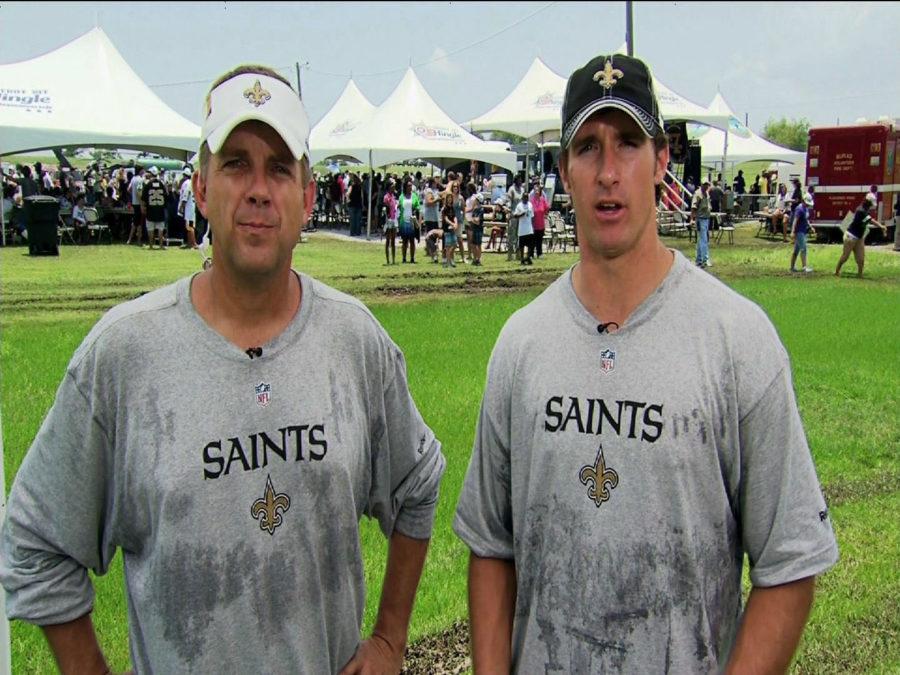EDITORIAL: ‘Bountygate’ set to plague NFL
Sean Payton, left, New Orleans Saints coach, and Drew Brees, New Orleans Saints quarterback and 2010 Super Bowl MVP.
April 9, 2012
Anyone who has been remotely paying attention to the world of sports in the last month has heard about the scandal in which the New Orleans Saints had devised a bounty system that awarded the team’s defensive players with cash rewards for causing injuries out on the field.
As a result, NFL Commissioner Roger Goodell suspended Saints coach Sean Payton for the entire 2012 NFL season, among other punishments handed down by the league, and saw the NFL deny New Orleans’ appeal Monday.
Fans of the Super Bowl XLIV champion Saints have bitten their collective tongue as others have expressed outrage, as would be expected.
Almost a year after a lockout threatened to take away games from the 2011 season, a scandal is not what NFL fans need right now.
Yes, there is the possibility that bounty systems have existed in the NFL long before this incident ever came to light, so this might not be anything new. Performance-based incentives are common in players’ and coaches’ contracts, so the sprouting of a bounty system that encourages injuries of other players seems plausible in occurrence.
But this has the potential to become the “bounty era” — akin to the “steroid era” no more than 15 years ago — once more developments unfurl. This could potentially mean bad news for players seen delivering multiple hard hits during the course of a game without the actual intention of inflicting injury.
For instance, Pittsburgh Steelers linebacker James Harrison is notoriously known for his violent style of play and has even been quoted as saying he hates Goodell. Because of this and the bounty scandal, players like Harrison will become targets for league officials in an effort to combat “dirty” play.
We’re not saying Harrison is justified in his brash demeanor, we’re just saying that “Bountygate” is sure to demonize physical players like him in an effort to reduce the rate of intentional injuries.
Let’s say there is a player who is, in fact, not intentionally trying to play dirty but ends up dishing out a couple of violent hits that end up severely injuring his opponent. That player is now under a microscope by default because of all that has surfaced with Bountygate.
Folks, football is a violent sport. Players are going to get injured without their opponents trying to intentionally inflict said injury upon them.
For instance, Ken Griffey Jr. hit 630 home runs — fifth all-time in MLB history — in his 22 seasons in the MLB, but was never found to be under the influence of performance-enhancing substances. Having played through the heart of the steroid era, Griffey is proof that not every player is guilty of involvement in a scandalous activity.
Of course, comparing injuries to home runs is like comparing apples to oranges. But the gist of our argument is that because of Bountygate, players who cause injuries from the routine contact of the sport will now be subject to possible scrutiny if they find themselves in the wrong place at the wrong time.







